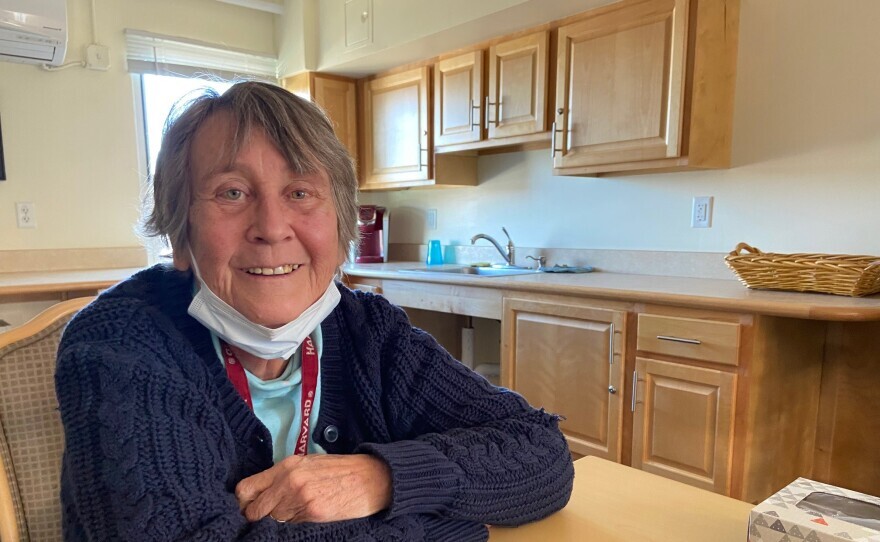Some mental health advocates in Massachusetts want a new name for schizophrenia

Linda Larson, 74, of Cambridge, Mass., is advocating for a new name for schizophrenia. (Karen Brown / NEPM)
When someone is diagnosed with schizophrenia — a psychotic disorder marked by delusional thinking — they often experience fear and anxiety.
A group of Massachusetts-based researchers and advocates say changing the name of the mental illness could go a long way to reducing its stigma.
But others say the term itself is not the problem.
On a recent afternoon, Linda Larson hurried through her apartment building in Cambridge, Massachusetts, and didn’t answer interview questions until she got through the lobby to the parking lot.
“People probably think of me as eccentric, which is fine,” she said. “But I don’t want to go over the details of what it meant to be diagnosed with schizophrenia in front of —” Larson nodded toward a building manager and a few other residents milling about at the mailboxes.
As it happens, this interview was about the stigma of schizophrenia and what people think when they hear the term.
“It’s kind of like ‘sociopath,’ but worse,” Larson said. “There’s no expectation except violence and disengagement.”
That’s why Larson, 74, is among those advocating for a new name for schizophrenia. In fact, she came up with one while sitting with friends at a café. She was trying to explain what it was like to live with the psychotic illness for decades.
“And I said it’s like altered perception. Your perception doesn’t read the way other people do. It’s altered by the illness,” she said.
So, “altered perception syndrome” became one of nine alternative names suggested by a group Larson is involved with, called the Consumer Advisory Board. It’s part of the Massachusetts Mental Health Center, based at Beth Israel Deaconess Medical Center in Boston.
For the rest of this story, including the audio version, please visit NEPM.org. A version of this article appeared in The New York Times on December 21, 2021.
